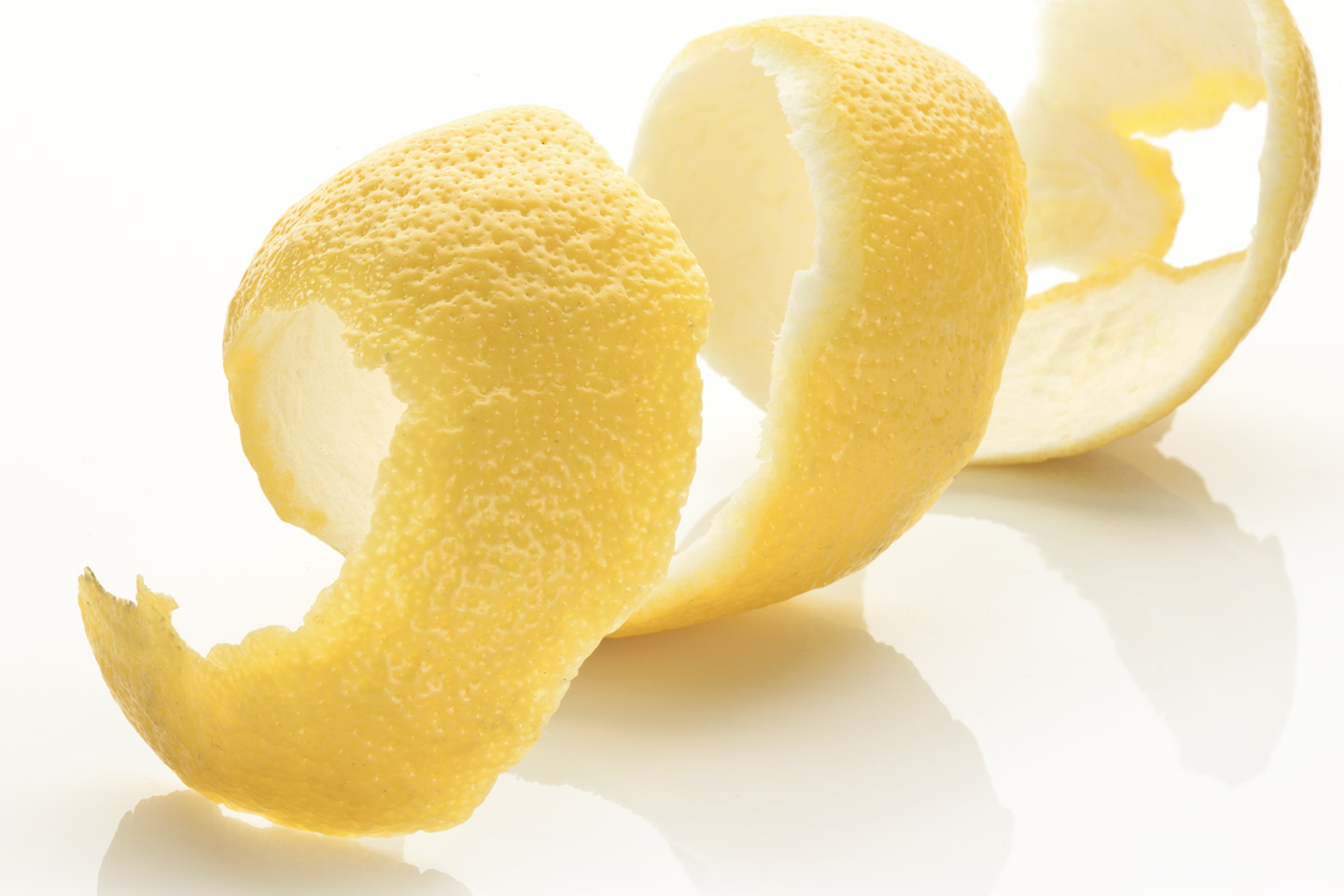When life gives you lemons, make lemonade. But what to do with all those lemon peels?
Don’t toss them, put them to work. Lemons juice is about 5 to 6 percent citric acid and has a pH level of between 2 and 3.
This low pH acidity makes lemon juice a great ally in breaking down rust and mineral stains, but gentle enough to not dull finishes. There is generally sufficient juice left in used lemon halves to tackle small tasks, and it all comes with its own applicator (the rind itself).Plus, the oil in the peel is perfect for clever culinary applications, and not bad in the beauty department either.
Here’s what you can do: Clean greasy messes Greasy pans? Splattered stove tops? Messy counters? If your kitchen has been the victim of some sloppy sautéing, try using lemon halves before bringing out possibly toxic chemical cleaners. Sprinkle some salt (for abrasion) on a juiced lemon half and rub on the greasy areas, wipe up with a towel. (Be careful using lemon on marble counter tops, or any other surface sensitive to acid).
Clean your tea kettle or coffee pot For mineral deposit build up in your tea kettle, fill the kettle with water, add a handful of thin slices of lemon peel and bring to a boil. Turn off heat and let sit for an hour, drain, and rinse well. For coffee pots, add ice, salt and lemon rinds to the empty pot; swish and swirl for a minute or two, dump, and rinse. Hello, sparkly.
Clean your microwave All it takes is one exploding bowl of food to render the interior of your microwave officially gunned. Rather than using strong chemical cleaners, try this: Add lemon rinds to a microwave-safe bowl filled halfway with water. Cook on high for 5 minutes, allowing the water to boil and the steam to condense on the walls and tops of the oven.
Carefully remove the hot bowl and wipe away the mess with a towel. Deodorize the garbage disposal Use lemon peels to deodorize the garbage disposal (and make your kitchen smell awesome at the same time). Polish chrome Mineral deposits on chrome faucets and other tarnished chrome make haste in the presence of lemon–rub with a squeezed lemon half, rinse, and lightly buff with a soft cloth. Polish copper A halved lemon dipped in salt or baking powder can also be used to brighten copper cookware, as well as brass, chrome, or stainless steel.
Dip a juiced lemon half in salt (you also use baking soda or cream of tartar for the salt) and rub on the affected area. Let it stay on for 5 minutes. Then rinse in warm water and polish dry. Clean a stainless sink Use the same method described to polish chrome, applied to any stainless sink. Keep insects out Many pests abhor the acid in lemon. You can chop of the peels and place them along thresholds, windowsills, and near any cracks or holes where ants or pests may be entering.
Source: care2.com















